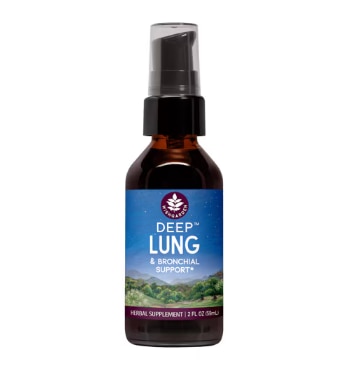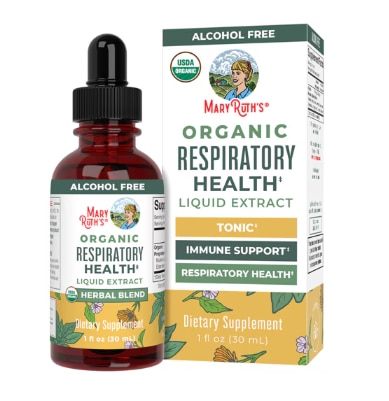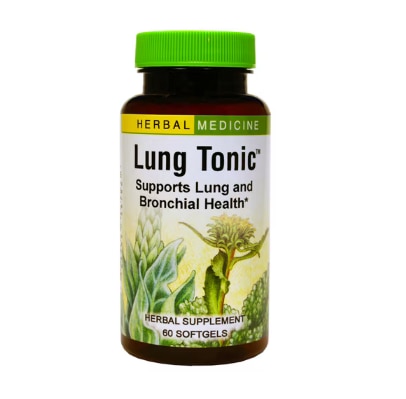Autumn has arrived, and the weather is cooling in many places. Winter will soon follow, and the plummeting temperatures of the season could put the health of your lungs at risk.
When you encounter cold, dry conditions, your body works to warm and humidify incoming air before it reaches the lungs and an exchange of gas occurs.
However, this process can be tough on your lungs, leading to bronchospasm, a tightening of the muscles lining the airways.
Is cold weather bad for your lungs?
“Cold air can irritate the bronchial tubes and cause the airways to constrict,” says Rachael Morkunas, assistant director of programs and policy at the Respiratory Health Association. “This irritation of the airways can exacerbate symptoms.”
As your airways become irritated and inflamed, you may experience:
- Coughing
- Wheezing
- Shortness of breath
Cold, dry air can dry out and irritate anyone’s airways. However, those with lung diseases such as asthma or chronic obstructive pulmonary disease are at a higher risk of experiencing symptoms associated with such air.
People with these conditions have airways that are already inflamed, and cold weather can make the situation worse.
“For people chronic lung conditions, these symptoms can lead to a serious exacerbation which may require hospitalization,” Morkunas says.
Tips for keeping lungs healthy in cold weather
There is little you can do to change the weather. If you live in a region susceptible to cold weather, winter winds will howl and the thermometer will bottom out from time to time.
So, unless you plan to book a long stay on a tropical island in January, you need to adapt to your situation to prevent cold air from wreaking havoc with your respiratory health.
Fortunately, there are things you can do to get ahead of symptoms both before and after they occur, Morkunas says.
“While you can’t control the weather, you can control how you prepare for it,” she says.
Your airways are most at risk of reacting negatively when temperatures fall below 30 degrees Fahrenheit. Tips for avoiding symptoms in cold, dry air include:
Breathe correctly.
Breathe in through the nose and out through the mouth. Your nose does a better job of humidifying air than your mouth.
Cover your mouth with a scarf.
“When the temperatures dip near or below freezing, breathing through a scarf or handkerchief can help to warm the air as it is breathed in,” Morkunas says.
Follow pollution forecasts.
Try to stay indoors if air pollution is high. This is especially important for those who have a lung disease.
Avoid exercising outside.
If the weather is especially cold, you are better off getting activity inside a warm gym that will keep your lungs better protected. Breathing heavily outside during a cold snap is more likely to trigger symptoms, especially as you lose heat and water in your lungs.
Use a humidifier.
Morkunas says humidifiers in your home can add moisture to the air, which may prevent irritation to your airways.
Keep medications close by.
If you need an inhaler, keep it accessible in case symptoms suddenly arise. “Additionally, you can also prepare by taking your quick-relief inhaler medication 10 to 15 minutes before going outside to reduce the risk of exacerbation” Morkunas says.
Take other preparatory steps.
Cold or severe winter weather can lead to power outages or being stuck at home for an extended period. Keep an extra supply of inhaler medications. If you use a CPAP machine or other oxygen assistance, having an emergency generator can help you operate such devices when the power is out.
How to react when cold weather irritates your lungs
Even if you take all the right preventative measures, it’s still possible that cold weather will irritate your lungs.
If you carry a quick-relief inhaler medication, it’s important to use it when you are in cold air and notice symptoms such as coughing, shortness of breath or wheezing.
“You should also move indoors to a warmer environment to help ease symptoms,” Morkunas says.
If symptoms do not improve, consult a healthcare provider. This is especially important if you have a pre-existing lung condition.
Don’t relax when winter is over
The end of winter can spell relief for those whose lungs struggle to handle cold weather. However, warm air also can make breathing more difficult for some people.
Folks with COPD, asthma and other lung issues may find that hot, humid air also triggers constriction of the airways. Smog and other summer air pollution also can make it more difficult to breathe.
Airway irritation can be frustrating and dangerous, whether it results from cold air or hot air. But with treatment, the condition is usually manageable.
If you experience any type of breathing issues regardless of the season, consult with a health care professional who can provide you with an effective plan for keeping your lungs healthy when temperatures plummet.
Featured Products



The post Is Cold Weather Bad for Your Lungs? Follow These Steps for Easier Breathing first appeared on The Upside by Vitacost.com.

